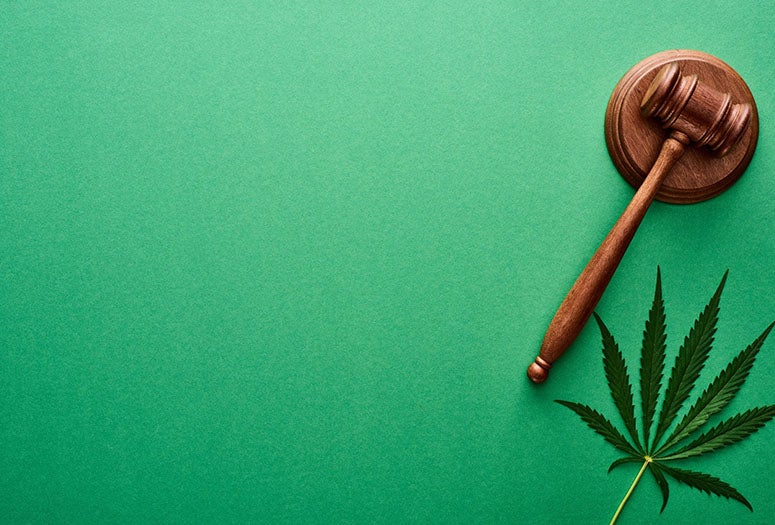Inequities in marijuana policy persist because of a failure to center reform around racial justice, according to a new report by experts at Rice's Baker Institute for Public Policy in the American Bar Association publication The Judges’ Journal.
Public support for cannabis legalization has surged in recent years, and public policy is slowly catching up, according to report co-authors Katharine Neill Harris, the Alfred C. Glassell III Fellow in Drug Policy at the Baker Institute, and William Martin, director of the Drug Policy Program at the institute.
Marijuana is second only to alcohol in popularity among psychoactive substances in the U.S., with an estimated 45% of the adult population having tried it in their lifetime. A September 2019 Pew Research poll found that 91% of adults approve legalizing medical use, with 59% of that group saying it should also be legal for general adult use.
Most Americans live in states with legalized access for medical purposes, and a growing number live in states where general use is legal. Yet more people are arrested for cannabis possession than any other offense in the United States, according to the report. Of the 1.6 million drug arrests in 2018, 43% were marijuana related, and 92% of those were for possession.
The impact is racially disproportionate.
“Cannabis use rates are roughly equivalent across racial groups, yet Black people on average are 3.64 times more likely to be arrested for possession, a disparity that has remained constant since 2010 despite several states’ loosening restrictions since then,” the authors wrote. “Troublingly, disparities increased in 31 states between 2010 and 2018.”
Harris and Martin argue that marijuana law has always disproportionately impacted people of color, a pattern perpetuated by policy arguments centering on economic and personal liberty gained by legalization rather than racial justice.
When President Richard Nixon declared a war on drugs in 1971, marijuana was deemed to have no medical value and high potential for abuse and was placed in Schedule I, in company with heroin, LSD and ecstasy, among others. It remains a Schedule I drug today “despite a wealth of evidence showing the errors of this categorization,” according to Harris and Martin. They wrote: “In a recent interview, John Ehrlichman, a former domestic policy chief for Nixon, stated, ‘We knew we couldn’t make it illegal to be either against the (Vietnam) war or Black, but by getting the public to associate the hippies with marijuana and Blacks with heroin, and then criminalizing both heavily, we could disrupt those communities.’”
Harris and Martin argue that legalization alone is not enough to remedy systemic inequities. Some states that have legalized marijuana or decriminalized possession see a drop in the racial disparity of arrests, but others see a rise in both disparity and total arrests.
“In Los Angeles County (California), marijuana arrests increased between 2017, a year before legalization, and 2019, a year after legalization," they wrote. "During that period, the proportion of people arrested who were Black increased from 29% to 42%. Most of these arrests were related to transporting or selling marijuana, but, as others have pointed out, these charges are typically based on officer assumptions, not direct viewing of selling activity.”
The federal government could provide a blueprint for states to adopt equitable reforms, Harris and Martin argue, and they say the Marijuana Opportunity Reinvestment and Expungement Act of 2019 (MORE Act) passed by the House of Representatives in December is a start. It would deschedule cannabis and decriminalize it at the federal level.
“Even if it is signed into law, an outcome far from certain, the degree to which cannabis policies promote equity effectively will also depend on individual states,” they wrote.
Harris and Martin argue for investing a sizable portion of the marijuana industry’s tax revenue in communities impacted by the drug war.
“States and localities should be doing all they can to implement cannabis reform in an equitable manner, but, ultimately, we need national leadership. The federal government started the war on marijuana, and it must be the one to end it,” they wrote.
“It is the only entity that can remove cannabis from the list of Schedule I controlled substances, allow more scientific research and give banks legal cover to provide cannabis-related business loans,” they continued. “When the federal government eventually enacts marijuana reform, we hope it will do so with social justice and racial equity as primary goals and that this victory will mark the beginning of an end to the war on drugs.”

